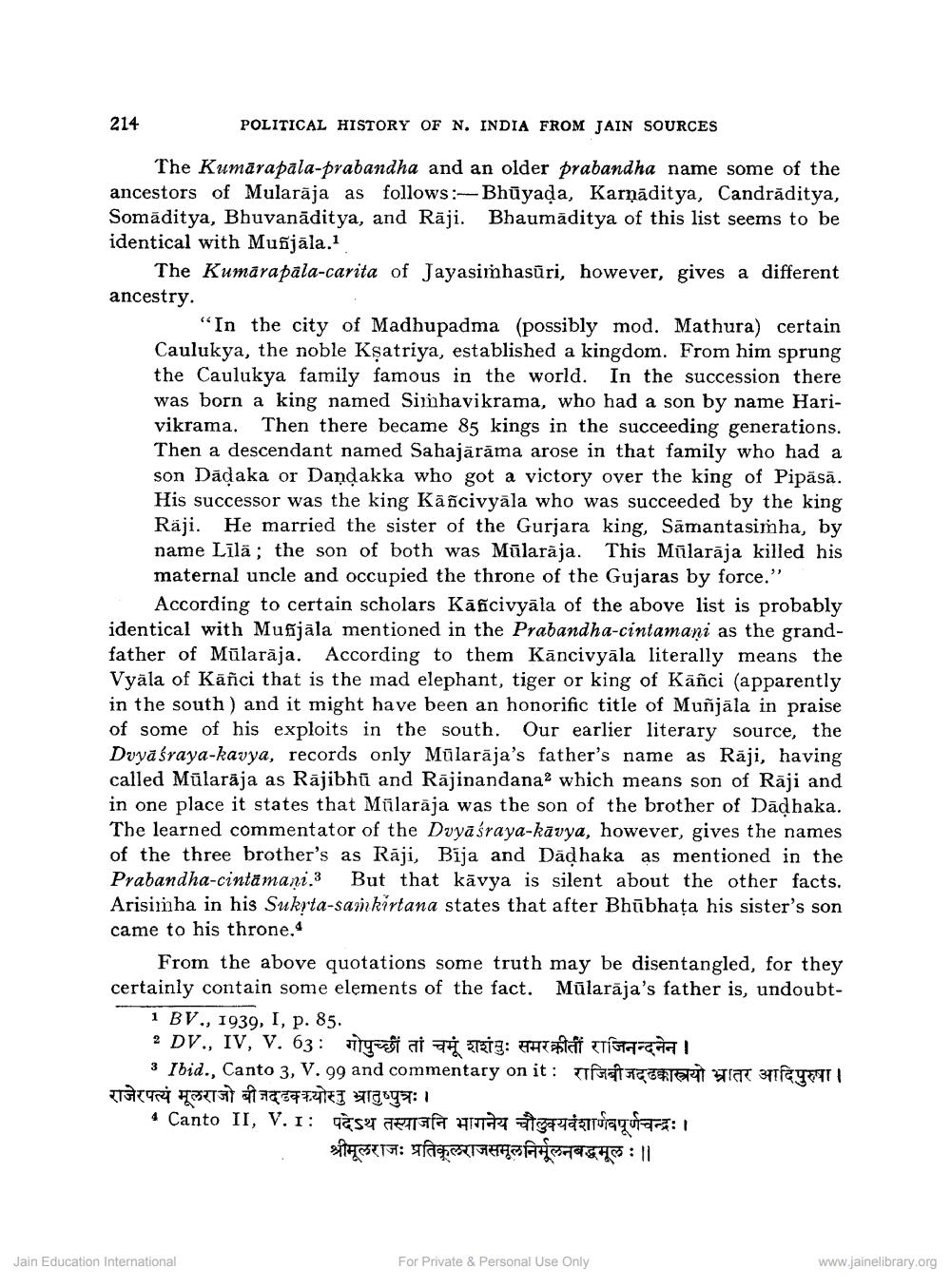________________
214
POLITICAL HISTORY OF N. INDIA FROM JAIN SOURCES
The Kumarapala-prabandha and an older prabandha name some of the ancestors of Mularaja as follows:-Bhuyaḍa, Karmaditya, Candraditya, Somaditya, Bhuvanãditya, and Raji. Bhaumaditya of this list seems to be identical with Musjala.1
The Kumarapala-carita of Jayasimhastri, however, gives a different ancestry.
"In the city of Madhupadma (possibly mod. Mathura) certain Caulukya, the noble Kṣatriya, established a kingdom. From him sprung the Caulukya family famous in the world. In the succession there was born a king named Simhavikrama, who had a son by name Harivikrama. Then there became 85 kings in the succeeding generations. Then a descendant named Sahajarāma arose in that family who had a son Dadaka or Dandakka who got a victory over the king of Pipäsa. His successor was the king Kañcivyala who was succeeded by the king Rāji. He married the sister of the Gurjara king, Samantasimha, by name Lila; the son of both was Mülaraja. This Malaraja killed his maternal uncle and occupied the throne of the Gujaras by force."
According to certain scholars Kafcivyala of the above list is probably identical with Muñjala mentioned in the Prabandha-cintamani as the grandfather of Millaraja. According to them Kancivyala literally means the Vyala of Kafici that is the mad elephant, tiger or king of Kañci (apparently in the south) and it might have been an honorific title of Muñjala in praise of some of his exploits in the south. Our earlier literary source, the Dvyasraya-kavya, records only Malaraja's father's name as Raji, having called Mularāja as Rajibha and Rajinandana2 which means son of Raji and in one place it states that Mularaja was the son of the brother of Dadhaka. The learned commentator of the Dvyasraya-kavya, however, gives the names of the three brother's as Rāji, Bija and Dadhaka as mentioned in the Prabandha-cintamani.3 But that kavya is silent about the other facts. Arisimha in his Sukyta-samhirtana states that after Bhubhața his sister's son came to his throne.4
From the above quotations some truth may be disentangled, for they certainly contain some elements of the fact. Mülaraja's father is, undoubt
1 BV., 1939, I, p. 85.
• DV., IV, V. 63 गोपुच्छीं तो चमूं शत्रुः समरकीतों राजिनन्दनेन ।
3 Ibid., Canto 3, V. 99 and commentary on it:
राजेरपत्यं मूलराज श्री जयोस्तु भ्रातुष्पुत्रः ।
• Canto II, V. x पदेऽथ तस्याजनि भागनेय चीलुक्यवंशार्णवपूर्णचन्द्रः । श्रीमूलराजः प्रतिकूलराजसमूल निर्मूलनबद्धमूल ॥
Jain Education International
fenfay
For Private & Personal Use Only
www.jainelibrary.org




